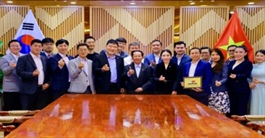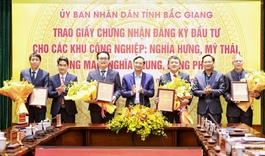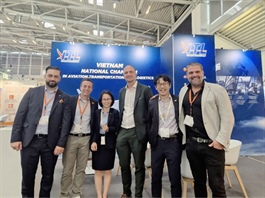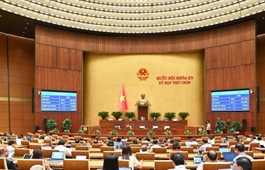New law improves technical standards and regulations
New law improves technical standards and regulations
The National Assembly on April 14 adopted the amended Law on Technical Standards and Regulations, creating a favourable legal corridor for businesses, while enhancing the effectiveness of state management.
With a comprehensive and transparent approach, the amended law helps complete an important legal framework to enable Vietnam to meet the requirements of deep integration and promote innovation.
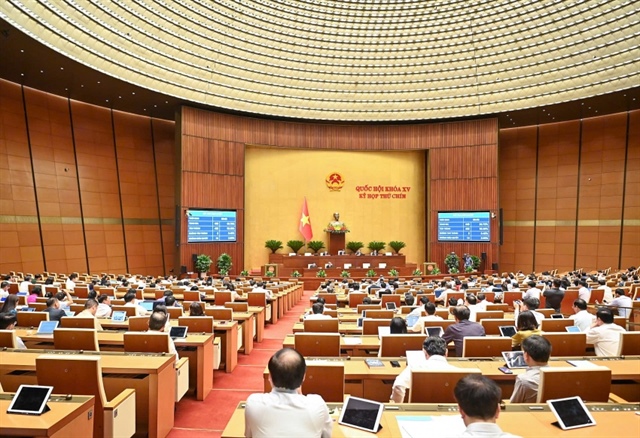
National Assembly deputies voted for the amended Law on Technical Standards and Regulations. Photo: MoST |
One of the breakthroughs is that the law legalises the concept of “technical barriers to trade” for the first time, contributing to clarifying the limits and principles of developing and applying standards that do not become unreasonable barriers in the context of Vietnam's deep integration with free trade agreements (FTAs).
The other is that the law expands the policy framework and principles of state management in standards and technical regulations with the goal of building modern and synchronous quality infrastructure.
As stated in Article 6, the state gives orientation, enterprises are central, and society are participants, demonstrating strong institutional reform thinking, focusing on promoting innovation and digital transformation.
Notably, the law allows for the expansion of public-private partnerships in developing standard services, encouraging associations, businesses, and overseas Vietnamese to participate in developing national standards.
The strategy emphasises standards for strategic technology, exports of high-tech products, and building standards in harmony with international standards, thereby contributing to national competitiveness.
Following comprehensive digital transformation, the law adds standards for the national database, measurements, and quality, a unified, modern digital platform connected with other government data systems.
This will help save costs and reduce administrative procedures, and contribute to improving the effectiveness of state supervision and management, helping businesses to access technical information in a transparent and timely manner.
The law also allows conformity assessment to be carried out by domestic or international organisations or self-performed, creating a flexible mechanism, reducing costs for businesses while still ensuring technical rigour.
Article 57 on mutual recognition of conformity assessment results is the other change. Vietnam will continue to expand mutual recognition agreements and allow unilateral recognition of assessment results of prestigious international organisations.
The new law is expected to be a strong legal foundation for Vietnam to proactively adapt to new requirements of the digital economy, green transformation, and international integration, thereby affirming an increasingly solid position on the world standardisation map.
- 10:25 17/06/2025







